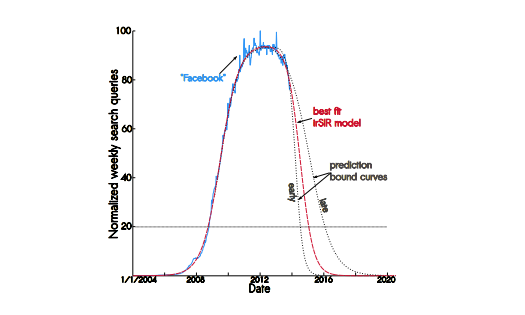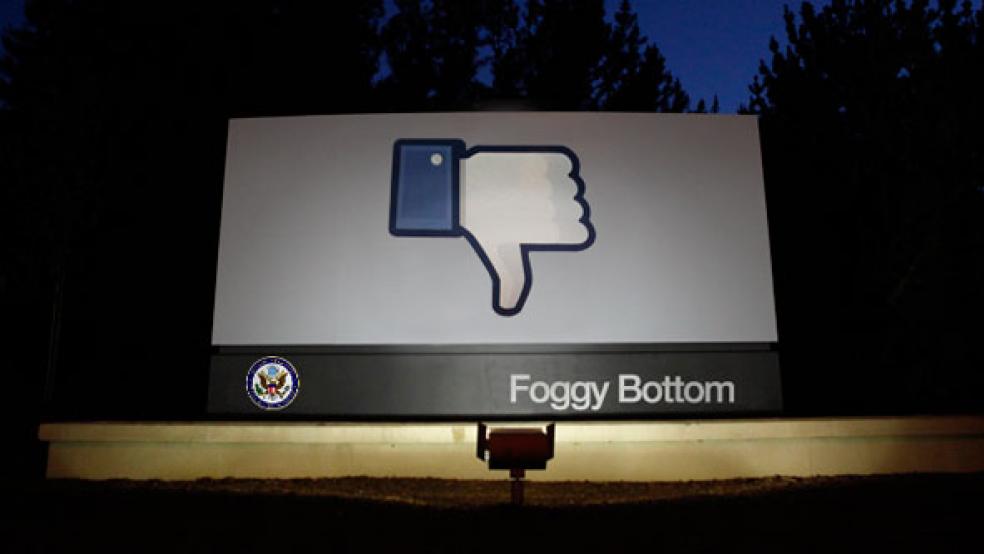A new study by researchers at Princeton University’s Department of Mechanical and Aerospace Engineering gives a deeper meaning to the idea of “going viral” when it comes to social media. Using epidemiological models — those used to study the spread of infectious diseases — and Google search data, researchers John Cannarella and Joshua D. Spechler looked at the rise of social networks like Facebook, where, they write, “adoption is analogous to infection and abandonment is analogous to recovery.”
Their conclusion (see the PDF here) paints a dire prognosis for Facebook: The social network, which turns 10 next month, has passed the peak of its popularity and is already in decline. That idea may not be new given all the reports about how younger users are abandoning the service, but the speed at which the study expects Facebook to collapse is surprising and dramatic: “Extrapolating the best fit model into the future suggests that Facebook will undergo a rapid decline in the coming years, losing 80% of its peak user base between 2015 and 2017.”
Related: Why Your Favorite Social Network Will Probably Die

So is Facebook, with nearly 1.2 billion monthly active users as of September, really set to go the way of smallpox, and before the end of the decade at that? As Chris Gayomali at Fast Company and others point out, there are at least a couple of reasons to be skeptical.
First, the researchers tested their model by looking at another social network that actually did have a meteoric rise and fall: MySpace. “Obviously, Facebook has the luxury of MySpace’s past missteps to guide its future growth,” Gayomali writes. Where MySpace struggled to adapt under News Corp. ownership in order to keep and expand its user base, Facebook has so far been better at updating and evolving its offerings.
While plenty of competitors are looking to wipe out Facebook’s business – and some, like WhatsApp, Snapchat or Twitter – have “buried” Facebook among teens, no single replacement has yet emerged to kill off Facebook the way Facebook itself did to MySpace. The kids may be moving on, but mom and dad and grandma and grandpa have settled in.
Related: How My Mom Killed Facebook
Second, the use of Google Trends search data may have had more relevance when MySpace was hot, but it might not be the best way to judge the life expectancy of Facebook or any other social network these days, when more and more people are logging in using apps on mobile devices. Facebook’s global user base continued to climb even after its Google search interest started to slide.
The study in the journal arXiv also hasn’t been peer-reviewed yet, so other experts may still find methodological or conceptual flaws. Investors, clearly, aren’t too worried. Facebook’s stock has soared nearly 90 percent over the past 12 months and remains near its 52-week peak. The company is set to report earnings for the fourth quarter and full year 2013 on Jan. 29.
Top Reads from The Fiscal Times:





